
| Title: | England and the Jews: How Religion and Violence Created the First Racial State in the West |
| Author/s: | Geraldine Heng |
| Abstract: | For three centuries, a mixture of religion, violence, and economic conditions created a fertile matrix in Western Europe that racialized an entire diasporic population who lived in the urban centers of the Latin West: Jews. This Element explores how religion and violence, visited on Jewish bodies and Jewish lives, coalesced to create the first racial state in the history of the West. It is an example of how the methods and conceptual frames of postcolonial and race studies, when applied to the study of religion, can be productive of scholarship that rewrites the foundational history of the past. |
| Date: | 29 November 2018 |
| More From: |
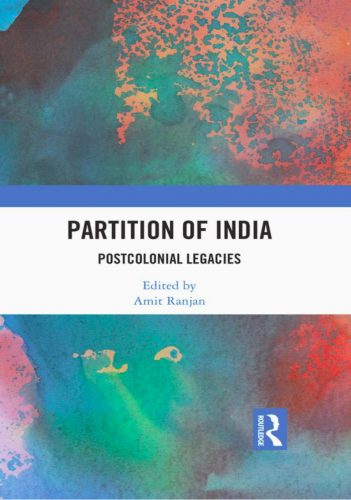
| Title: | Partition of India: Postcolonial Legacies |
| Author/s: | Amit Ranjan |
| Abstract: | The Partition of British India in 1947 set in motion events that have had far-reaching consequences in South Asia – wars, military tensions, secessionist movements and militancy/terrorism. This book looks at key events in 1947 and explores the aftermath of the Partition and its continued impact in the present-day understanding of nationhood and identity. It also examines the diverse and fractured narratives that framed popular memory and understanding of history in the region.
The volume includes discussions on the manner in which regions such as the Punjab, Sindh, Kashmir, Bengal, Uttar Pradesh (Lucknow) and North-East India were influenced. It deals with issues such as communal politics, class conflict, religion, peasant nationalism, decolonization, migration, displacement, riots, the state of refugees, women and minorities, as well as the political relationship between India, Pakistan and Bangladesh. Drawing on major flashpoints in contemporary South Asian history along with representations from literature, art and popular culture, this book will interest scholars of modern Indian history, Partition studies, colonial history, postcolonial studies, international relations, politics, sociology, literature and South Asian studies. |
| Date: | 26 November 2018 |
| More From: |
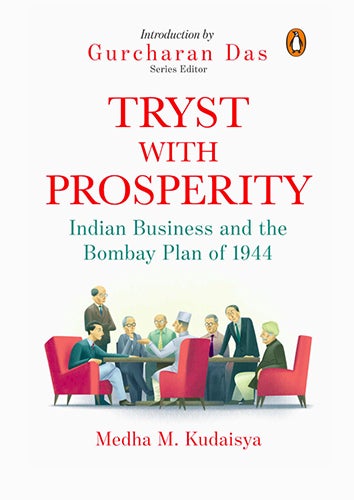
| Title: | Tryst with Prosperity: Indian Business and the Bombay Plan of 1944 |
| Author/s: | Medha Kudaisya |
| Abstract: | The Tryst with Prosperity is the story of the Bombay Plan which was initiated in 1944. Eight remarkable individuals from the world of industry, like J.R.D. Tata, Lala Shri Ram and G.D. Birla, came together and drafted this plan.
The Bombay Plan, an economic blueprint, promised to double India's per capita income in fifteen years; envisaged a 130 per cent rise in agriculture output; a 500 per cent increase in manufacturing; and a minimum standard of living for every individual. This plan held out the promise of partnership between the Indian state and private enterprise. Yet, ironically, a decade later, these captains of industry fell out with the Nehruvian establishment. Nonetheless, the indelible imprint of the Bombay Plan was manifest in the national Five Year Plans and in the economic trajectory of India. Seventy-five years later, the Bombay Plan's legacy continues to be unmistakable in the economic life of contemporary India. Rivetingly told, business historian Medha M. Kudaisya, narrates an important chapter from the story of Indian business. |
| Date: | 12 November 2018 |
| More From: |
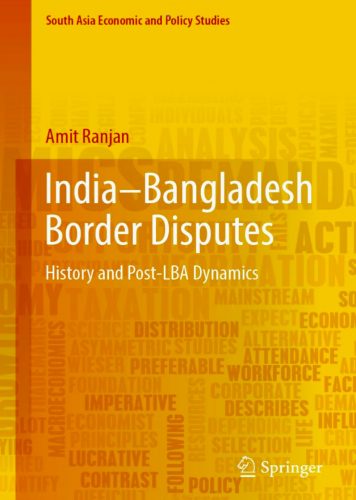
| Title: | India-Bangladesh Border Disputes: History and Post-LBA Dynamics |
| Author/s: | Amit Ranjan |
| Abstract: | This book discusses history of mental construction of the border between India and Bangladesh. It investigates how and when a border was constructed between the people, and discusses how the mental construction preceded the physical construction. It also examines the perils faced by those forced to leave their homes as a result of the partition of India in 1947.
Globally throughout history, the absence of borders made the movement of people from one place to another easier. The construction of borders and sovereign de-limitation of territory restricted or even prevented seamless migration. The situation becomes more complex near borders that were previously open to the movement of people. One such border is between India and Bangladesh, where, in August 1947, suddenly people were told that the places they used to visit on a daily basis were now a part of a different sovereign country. This book argues that borders construct the identity of an individual or a group. Those who cross to the other side of border, for whatever reason, are identified and categorized by the state and the people. Sometimes these migrants face violence from the locals because they are considered a threat to the local working class. The book also explains how, after the liberation of Bangladesh in 1971, everyday encounter between people from India and Bangladesh have further embedded a feeling of us versus them. In 2015, India and Bangladesh agreed to implement the India–Bangladesh Land Boundary Agreement (LBA). This book assesses whether the implementation of this agreement will have impacts on border-related problems like mobility, migration, and tensions. It is a valuable resource for policymakers, journalists, researchers and students. |
| Date: | 9 November 2018 |
| More From: |
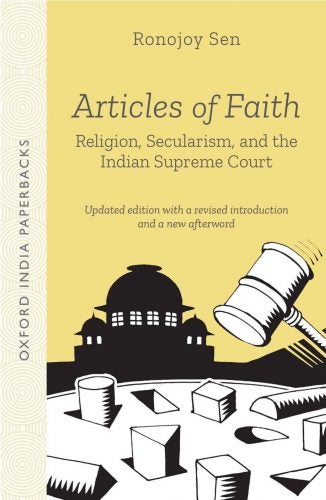
| Title: | Articles of Faith: Religion, Secularism, and the Indian Supreme Court |
| Author/s: | Ronojoy Sen |
| Abstract: | This book examines the relationship of religion and the Indian state and seeks to answer the question: 'How has the higher judiciary in Independent India interpreted the right to freedom of religion and in turn influenced the discourse on secularism and nationhood?' The author examines the tension between judgments that attempt to define the essence of religion and in many ways to 'rationalize' it, and a society where religion occupies a prominent space. He places the judicial discourse within the wider political and philosophical context of Indian secularism. The author also focuses on judgments related to Article 44, under the Directive Principles of State Policy, which places a duty on the state to 'secure' a uniform civil code for the nation. His contention is that the Indian Supreme Court has actively aimed at reform and rationalization of obscurantist religious views and institutions and has, as a result, contributed to a 'homogenization of religion' and also the nation, that it has not shown adequate sensitivity to the pluralism of Indian polity and the rights of minorities.
The new edition has an expanded and revised introduction, which reviews the new literature on secularism and jurisprudence on religion, both in India and other secular democracies. It also has a new afterword, which examines a few of the recent landmark judgments by the Indian Supreme Court on religion. |
| Date: | 5 November 2018 |
| More From: |
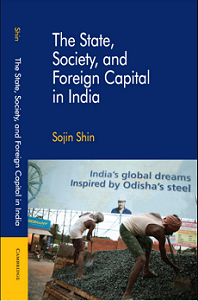
| Title: | The State, Society, and Foreign Capital in India |
| Author/s: | Shin, Sojin |
| Abstract: | Why are some states in India able to facilitate foreign capital inflows better while others are not? This book addresses the socio-political factors such as ideas and interests of political actors, which produce the different levels of foreign direct investment (FDI) in states of India. It studies the causal role of disparate state-society relations in the evolution of institutions facilitating and regulating FDI inflows in the states through a comparative case study on the manufacturing industries of Tamil Nadu and Odisha. |
| Date: | 1 July 2018 |
| More From: |
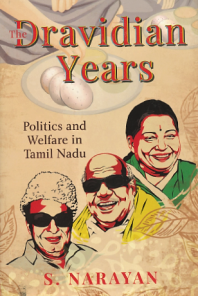
| Title: | The Dravidian Years |
| Author/s: | S Narayan |
| Abstract: | From Haryana to Gujarat to Maharashtra, numerous Indian states have been witness to protests by backward classes pressing for quotas and reservations. In stark contrast is the exemplary case of Tamil Nadu, which has managed to effectively integrate economic and development agenda for the backward classes into state policy. In the fifty years of rule between them, M. Karunanidhi, MGR and J. Jayalalithaa the iconic leaders of Tamil Nadu politics managed to effectively transform institutions and structures to deliver a social welfare agenda in the state. Was it pure charisma on part of these leaders that gave us the unusual story of politicians and bureaucrats working hand in hand to implement a social agenda? Written by S. Narayan, who as part of the administration was both a witness to and a participant in these developments, this book is an intimate narrative on the Dravidian years of Tamil Nadu. At an important juncture of Tamil Nadu politics, it also makes us wonder: With no charismatic leader in the horizon, who can take the state forward? |
| Date: | 1 July 2018 |
| More From: |
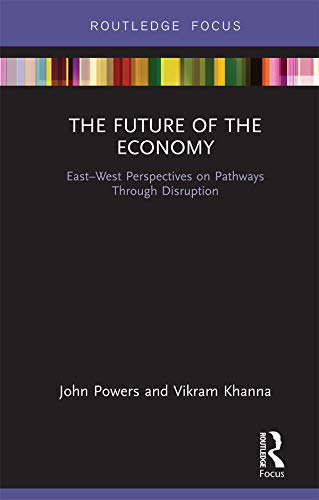
| Title: | The Future of the Economy: East-West Perspectives on Pathways through Disruption |
| Author/s: | Powers John and Vikram Khanna |
| Abstract: | As the pace of economic change seems to only quicken, including rapid technological advance, today’s advanced economies face uncertainty from a number of directions, most of which have the potential to change established modes of thinking and the institutional arrangements that underpin basic economic organization. Labor-saving technological advances are accompanied by risks to jobs due to automation. Work is being made more insecure for a wide variety of workers and skill levels because of shifting capital–labor relationships. Regulatory systems are scrambling to adapt to new technologies in infrastructure planning or to the classification of workers under rapidly proliferating "alternative work arrangements." Even the ties that bind groups of countries together in often long-standing bilateral and multilateral trade relationships are increasingly under strain with the rise of populist economic nationalism in some of the world’s largest economies. Crucial changes are taking place that risk eroding structures of opportunity, as well as public confidence in the institutions charged with economic policy making in many countries. The expert views contained in this book will be valuable to the reader studying or working on the many overlapping issues of economy, technology, and society and thus looking for insights into some of the most pertinent topics in today’s advanced economies.
Taking a multidimensional view, this book synthesizes the main issues and dilemmas facing the economy of the future, seeks to frame the trade-offs in policy terms, while also advancing the discussion towards recommendations and solutions. It focuses on the intersection of work, technology, society, infrastructure, and the economic role of government. In this way, the book is centered on some of the most tangible areas of economic structure that reproduce the gains of growth, but it also addresses matters related to the distribution effects and measures that can produce more inclusive and productive outcomes, including the fundamental role of policy and regulation. |
| Date: | 1 June 2018 |
| More From: |
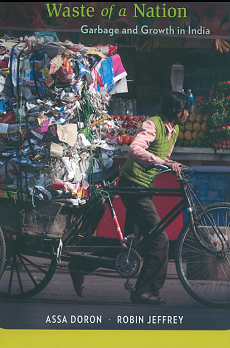
| Title: | Waste of a Nation: Garbage and Growth in India |
| Author/s: | Doron, Assa and Robin Jeffrey |
| Abstract: | In India, you can still find the kabaadiwala, the rag-and-bone man. He wanders from house to house buying old newspapers, broken utensils, plastic bottles—anything for which he can get a little cash. This custom persists and recreates itself alongside the new economies and ecologies of consumer capitalism. Waste of a Nation offers an anthropological and historical account of India’s complex relationship with garbage.
Countries around the world struggle to achieve sustainable futures. Assa Doron and Robin Jeffrey argue that in India the removal of waste and efforts to reuse it also lay waste to the lives of human beings. At the bottom of the pyramid, people who work with waste are injured and stigmatized as they deal with sewage, toxic chemicals, and rotting garbage. Terrifying events, such as atmospheric pollution and childhood stunting, that touch even the wealthy and powerful may lead to substantial changes in practices and attitudes toward sanitation. And innovative technology along with more effective local government may bring about limited improvements. But if a clean new India is to emerge as a model for other parts of the world, a “binding morality” that reaches beyond the current environmental crisis will be required. Empathy for marginalized underclasses—Dalits, poor Muslims, landless migrants—who live, almost invisibly, amid waste produced predominantly for the comfort of the better-off will be the critical element in India’s relationship with waste. Solutions will arise at the intersection of the traditional and the cutting edge, policy and practice, science and spirituality. |
| Date: | 1 March 2018 |
| More From: |
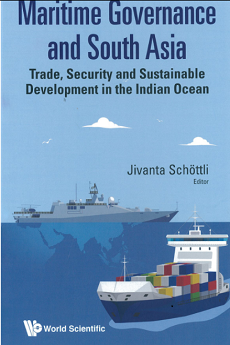
| Title: | Maritime Governance and South Asia: Trade, Security and Sustainable Development in the Indian Ocean |
| Author/s: | Schoettli, Jivanta. |
| Abstract: | Five out of the eight South Asian countries have direct access to the Indian ocean, yet research tends to focus instead on the region's landmass. Much less attention is paid to the extensive maritime space that links South Asian countries, provides their populations with vital access to resources, connects their economies to global trade networks and perhaps most importantly, contributes to law and order at sea.
At a time when the Indian Ocean has gained great interest and relevance for many global actors, the role and location of South Asia will have critical implications for strategic calculation and alignment. Furthermore, if trade imbalances are to be tackled and economic globalization to regain steam, enhancing South Asia's ability to export and import through the oceans is essential. Finally, climate change is projected to impact South Asia massively. Coping with humanitarian crises and natural disasters will need critical investments in maritime capacities and cooperation. This edited volume brings together multiple perspectives on contemporary maritime governance in South Asia, from practitioners, policy-makers and academics around the world. They examine India's role as South Asia's leading naval and economic power and the capacity of key actors to shape maritime order in the Indian Ocean. |
| Date: | 1 March 2018 |
| More From: |
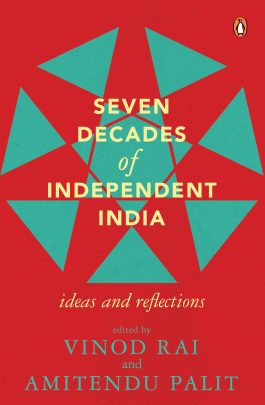
| Title: | Seven Decades of Independent India: Ideas and Reflections |
| Author/s: | Rai Vinod and Amitendu Palit. |
| Abstract: | Has democracy in India fulfilled the aspirations of its people? Have institutions delivered? Have public policies succeeded in making substantial differences to living standards? Is the country secure on its external borders? Would the country become an economic powerhouse? And can India be a leading power in the years ahead?
All these and many more questions loom large as India completes seven decades of independence. Major challenges persist on the economic front and in providing adequate and quality healthcare, education, food, sanitation and drinking water. Regulatory preoccupations persist as policymakers continue to search for optimal solutions. The task is made harder by a socio-political environment shaped by various complexities. These include an expanding young workforce, a demanding citizenry, intense social media campaigns and a difficult neighbourhood. Seven Decades of Independent India, edited by Vinod Rai and Amitendu Palit, reflects on the India of yesterday, today, and tomorrow, by gathering rare and candid insights from some of the most distinguished experts, practitioners and scholars on India. These include D. Subbarao, ex-governor of RBI; Rajiv Kumar, vice-chairman of NITI Aayog; S.Y. Quraishi, former chief election commissioner; Shivshankar Menon, former national security adviser; Ashok Gulati, professor ICRIER and former chairman of Commission for Agricultural Costs and Prices; Sumit Ganguly, professor of political science, Indiana University; A.K. Shiva Kumar, director, International Centre for Human Development; Poonam Muttreja, executive director, Population Foundation of India; Tan Tai Yong, president and professor (humanities) Yale-NUS College, Singapore; Dipankar Gupta, sociologist and former professor, JNU; Pronab Sen, former chief statistician of India and many others. |
| Date: | 1 March 2018 |
| More From: |
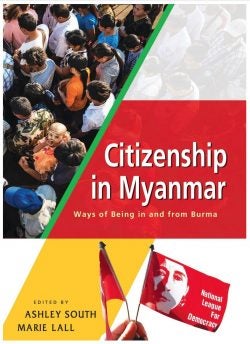
| Title: | Citizenship in Myanmar: Ways of Being in and from Burma |
| Author/s: | South Ashley and Marie Lall |
| Abstract: | Myanmar is going through a period of profound and contested transition. The country has experienced widespread if sometimes uneven reforms, including the start of a peace process between the government and Myanmar Army, and some two dozen ethnic armed organizations, which had long been fighting for greater autonomy from the militarized and Burman-dominated state.
This book brings together chapters by Burmese and foreign experts, and contributions from community and political leaders, who discuss the meaning of citizenship in Myanmar/Burma. The book explores citizenship in relation to three broad categories: issues of identity and conflict; debates around concepts and practices of citizenship; and inter- and intra-community issues, including Buddhist–Muslim relations. This is the first volume to address these issues, understanding and resolving which will be central to Myanmar's continued transition away from violence and authoritarianism. |
| Date: | 28 February 2018 |
| More From: |
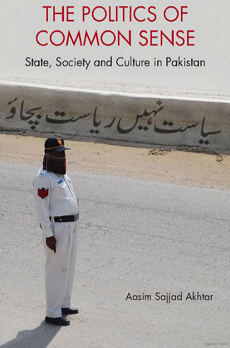
| Title: | The Politics of Common Sense: State, Society and Culture in Pakistan |
| Author/s: | Akhtar, Aasim Sajjad |
| Abstract: | This work offers a refreshingly different perspective on Pakistan - it documents the evolution of Pakistan's structure of power over the past four decades. In particular, how the military dictatorship headed by General Zia ul Haq (1977–1988) - whose rule has been almost exclusively associated with a narrow agenda of Islamisation - transformed the political field through a combination of coercion and consent-production. The Zia regime inculcated within the society at large a 'common sense' privileging the cultivation of patronage ties and the concurrent demeaning of counter-hegemonic political practices which had threatened the structure of power in the decade before the military coup in 1977. The book meticulously demonstrates how the politics of common sense has been consolidated in the past three decades through the agency of emergent social forces such as traders and merchants as well as the religio-political organisations that gained in influence during the 1980s. |
| Date: | 1 February 2018 |
| More From: |
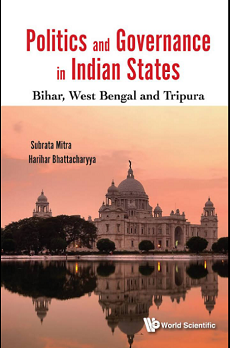
| Title: | Politics and Governance in Indian States: Bihar, West Bengal and Tripura |
| Author/s: | Mitra, Subrata Kumar and Harihar Bhattacharyya |
| Abstract: | Understanding India's politics and governance requires an examination of how politics and governance occur in the regional States, which constitute the federal units of India.
This book addresses the issues of federalism, power-sharing and constitutional reforms, and their effects on governance in Indian States. Located within the growing literature on new State politics in India, this volume presents a critical, in-depth analysis of politics in Bihar, West Bengal and Tripura — these States being units of analysis for more general implications. What common obstacles have impeded development in each State, and what factors have favored recent, rapid development in some States but not others? The issues of caste conflicts, ethnic conflicts and other collective identity issues will be examined in this book — a pioneer volume with detailed, empirically-based research on the implications of State-centric politics in India. |
| Date: | 1 February 2018 |
| More From: |
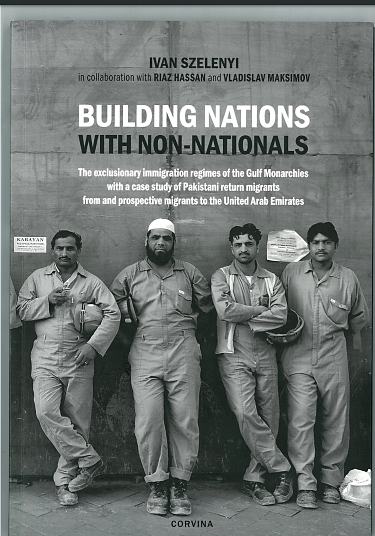
| Title: | Building Nations with Non-Nationals: The Exclusionary Immigration Regimes of the Gulf Monarchies with a Case Study of Pakistani Return Migrants from and Prospective Migrants to the United Arab Emirates |
| Author/s: | Szelenyi Ivan, Riaz Hassan and Vladislav Maksimov |
| Abstract: | Ivan Szelenyi was the Foundation Dean of Social Sciences at NYUAD in 2010–2014 and during his tenure there he carried out a study of Pakistani guest workers who had worked in the United Arab Emirates and were about to take up a job in this country. About 90 percent of the population of the UAE are guest workers (about half of this population is from India, Pakistan and Bangladesh).
The critical research question for the study was: is it sustainable to build a nation with 90 percent who are not-nationals and have no legal channels to become citizens of the country where they spend occasionally a substantial part of their life? Can people from different ethno-sectarian background merge into a well-functioning society? Given labor shortages in Europe and North America and extraordinary pressure to migrate to these countries these questions do have relevance well beyond the Gulf Monarchies. |
| Date: | 1 February 2018 |
| More From: |
Load more


